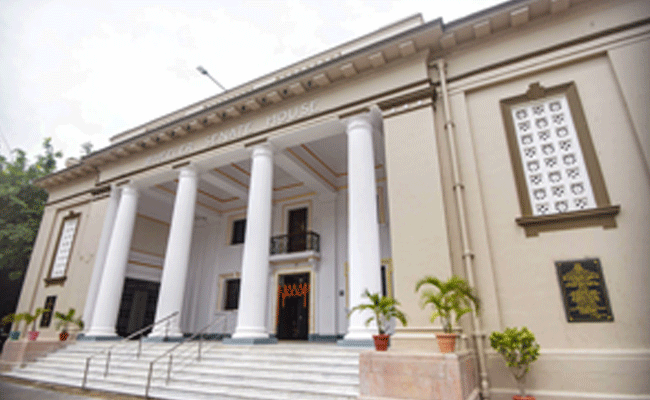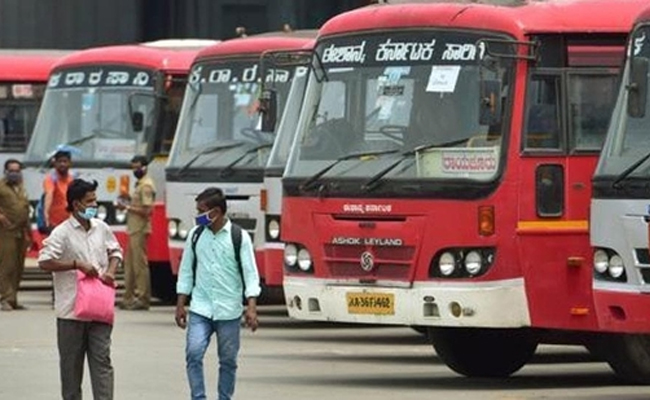Patna (PTI): The historic Wheeler Senate House of the Patna University has been renamed 'Jayaprakash Narayan Anushad Bhawan' after socialist leader Jayaprakash Narayan.
The 97-year-old senate house shed its British-era name days before Patna University (PU) completed 106 years. Located between the banks of the Ganga and the old Ashok Rajpath, the university was established on October 1, 1917.
A ceremony to mark the 106th anniversary of the university was held at the capacious senate hall on Sunday, during which gold medals were presented to various department toppers.
The charming senate house with Doric columns framing its entrance was inaugurated on March 20, 1926 by the then governor of Bihar and Orissa province and Patna University chancellor Sir Henry Wheeler.
It was built using a generous endowment from Raja Devakinandan Prashad Singh of Monghyr (now Munger in Bihar). Sir Henry Wheeler had laid its foundation stone in 1925, according to archival records.
This iconic landmark in Patna has been a venue for many historic events since its opening.
The old senate house has hosted innumerable convocation ceremonies of PU, senate meetings, opening session of the Indian Science Congress in 1933 and several annual general meetings of the Bihar and Orissa Research Society (later Bihar Research Society) in the 1920s and 1930s, among other key events.
Traditionally, PU Foundation Day ceremonies have been hosted at this venue.
Days before the 106th anniversary of the university, a new plaque was installed on the right side of the senate house's facade stating that it has been renamed after Jayaprakash Narayan, popularly known as 'JP', a Patna University official said.
As guests streamed in on Sunday and walked through the hallowed portals of the refurbished senate house, not many noticed the new plaque.
The plaque, with the university emblem at the top, reads: "Patna University - on September 13, 2023, after approval by Bihar Governor-cum-Chancellor Shri Rajendra Vishwanath Arlekar, Wheeler Senate House has been renamed 'Jayaprakash Narayan Anushad Bhawan'...".
The senate house building has been refurbished. A sum of Rs 2.84 crore was sanctioned for this earlier, officials said.
Bihar Governor Rajendra Arlekar and Chief Minister Nitish Kumar had on September 5 unveiled a plaque embedded on the left side of the facade of the senate house to commemorate the reopening of the renovated hall.
In his address on the occasion, Arlekar had suggested renaming the Wheeler Senate House, saying it was a colonial-era name.
Speaking about Rabindranath Tagore's visit to the Wheeler Senate House in March 1936, the governor had suggested that the hall could be named after the Nobel laureate.
"There is a need to think over it. (Patna) University people should definitely consider this. I am ready for this," he had said.
Days later, "emergency meetings" of the university's Academic Council and the Syndicate were convened and a "proposal to rename" the Wheeler Senate House was cleared. The proposal was then sent to the governor, who is also the university's chancellor, for approval, sources said.
The renaming of the iconic landmark, however, was not welcomed by all.
Patna University alumnus Shanker Dutt said it is "disappointing" that the identity of a historic place like Wheeler Senate House has been "altered".
"What renaming does, more so of a public building like Wheeler Senate House, is that it takes away the point of reference in history when seen retrospectively. The building has hosted a plethora of historic events during its journey and proceedings, documents and photographs associated with it will describe the venue as Wheeler Senate House," he said.
"So, would we now say that Tagore visited the 'JP Senate House' in 1936," asked Dutt, who also taught for several decades at the university.
Many other scholars, including a former vice-chancellor of Patna University who did not wish to be named, said the renaming was "not needed" and would "create confusion" among people.
Let the Truth be known. If you read VB and like VB, please be a VB Supporter and Help us deliver the Truth to one and all.
New Delhi (PTI): The Supreme Court on Friday granted bail to filmmaker Vikram Bhatt's wife Shwetambari Bhatt in a multi-crore rupees cheating case.
The top court also sought responses of Rajasthan Police and complainant Ajay Murdia, founder of Indira IVF and Fertility Centre and a resident of Udaipur, by February 18 and said it may consider a day after the bail plea of filmmaker Vikram Bhatt.
Murdia alleged in his complaint that Bhatt and his wife induced him to invest over Rs 30 crore in a biopic of his late wife, promising high returns.
A bench comprising Chief Justice Surya Kant and Justice Joymalya Bagchi took note of the submissions of senior advocate Mukul Rohatgi, appearing for the Bhatts, and ordered forthwith release of Shwetambari Bhatt from Udaipur jail.
The bench asked the Chief Judicial Magistrate of Udaipur to pass the bail order delineating the terms and conditions for her release.
The top court also issued notices to complainant Ajay Murdia, the founder of Indira IVF and Fertility Centre and a resident of Udaipur, and the Rajasthan government for February 19.
Rohatgi said the director and his wife and others have been put behind bars.
"It is not so simple... Rs 30 crore fraud," the counsel for the state government said.
"But, you cannot use these cases to recover money," the bench said, adding that the complainant be also made a party to the petition.
"Unfortunately, they (petitioners) have not sought quashing of the FIR… How Rajasthan has been chosen? Very unfortunate," the bench said.
On January 31, the Rajasthan High Court rejected their bail applications in the cheating case.
The two have been in jail since December 7, 2025, when they were arrested in Mumbai and brought to Udaipur.
While rejecting their bail, the high court observed that granting bail to the accused at this stage would not be appropriate.
Vikram Bhatt was arrested after Murdia filed a complaint of cheating and criminal breach of trust against the filmmaker, his wife Shwetambari Bhatt and others, alleging that funds taken in the name of a film project were misappropriated.
The complaint has alleged that funds to the tune of Rs 30 crore were misappropriated. The complaint alleged that the Bhatts prepared fake bills under various names and got money transferred from the complainant.
The money was supposed to be for making films for the complainant, but was allegedly deposited into the accused's own accounts and used by them.
Apart from Vikram and his wife, Udaipur-based Dinesh Kataria and Bhatt's manager, Mehboob Ansari, were also arrested by Rajasthan Police on December 7, 2025.




